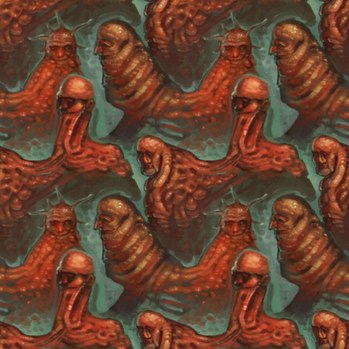During our class session on clicker games, another student posed a question along the lines of: how can a clicker game criticize the premise of clicker games (mindless tapping and/or capitalist ideals) without adapting those premises itself? To me, the answer comes down to a very stereotypical expression. You either die a hero or live long enough to become the villain.
Two of the games we discussed, Cow Clicker and Cookie Clicker, exemplify this perfectly.
Cow Clicker is our “hero”. It was built with the intention of satire and parody, but it still followed the typical clicker formula. Of course, this meant that it attracted an audience of people who enjoyed those sorts of games. The creator, Ian Bogost, realized that the game was becoming legitimately popular for the same mindless, addictive principles he had hoped to criticize. In order to stop this from happening, he simply… destroyed the game. Well, not quite “destroyed”, but he initiated an in-game apocalypse that stopped players from playing Cow Clicker the way they had previously, and later took the game down entirely. In this way, the game “died” instead of continuing to take up players’ time, attention, and money.
Cookie Clicker is a different story. Cookie Clicker is insanely, mind-bogglingly popular, and it has made plenty of money off of inducing addiction in its players. All of this success came about despite, or perhaps because of, the game’s intention to be yet another parody, similar to Cow Clicker. There are many flavor text elements of the game that still hold onto this origin. The game criticizes the player’s actions with bad reviews from your grandma employees and in-game news articles reporting the tragedies that result from your cookie hoard, but much of these elements simply cultivate more curiosity and interest in the player. And ultimately, it does not stop you from playing. This game has become the very thing it tried to criticize. It even caused a huge boom in the idle game industry, to the point where other games are now parodying it. Cookie Clicker has even started causing some of the pollution it calls out in its flavor text; people who are addicted to the game often leave their computers or mobile devices on for far too long, using up electricity and wearing down batteries faster than they should be. This game has been around for too many years and collected too big of an audience, and it is now an evil capitalist entity just like the player character.
Of course, there are always exceptions to the rule. In my case, the exception is There is No Game (TING). TING is not designed to be a clicker game, but it does include a clicker game stage.

This clicker game is different from the first two because it makes your life really, really difficult. Instead of working with the addictive properties of clicker games, it emphasizes all of the worst possible features. This clicker game has stamina, clicking resources that run out, and no way to automize the clicking process. In other words, TING actively tries to make you hate this part of the game, and clicker games in general. And it works! Most players only make it through this section of the game by virtue of knowing that, by this point in the definitely-not-a-game, there have to be ways to break the interface. The repetitive clicking is not the main way you play the game, merely an expected side-mechanic. Plus, there’s some humorous narration to soothe the frustration. Granted, TING holds the promise of “something else” lurking in the distance, some other not-game for you to play after you complete the clicker stage. It isn’t really designed for people who like idle games, or even specifically clicker games. That’s what makes it work as a criticism, though; it is in no way fun to play the actual clicker component.
Ultimately, there isn’t a way to create a clicker game that criticizes clicker games. It can’t happen because all clicker games rely on the same principles to make them playable in the first place. The only actual way to criticize clicker games is to work outside of their framework and to stop giving them your attention.


This is such a good point! Even though these games originally were created to critique the mindless grinding that played a huge part in lots of RPGs and simulation games, they end up encouraging the very thing they were trying to criticize. Adventure Capitalism comes to mind as another clicker game that criticizes capitalism, but ends up buying into it with micro-transactions. It’s interesting how Universal Paperclips’ commentary on capitalism shifts into commentary on space exploration and war. It is possible for clicker games to make commentary on these without entirely sacrificing morals. I wonder if there are any other things that clickers can provide commentary on.